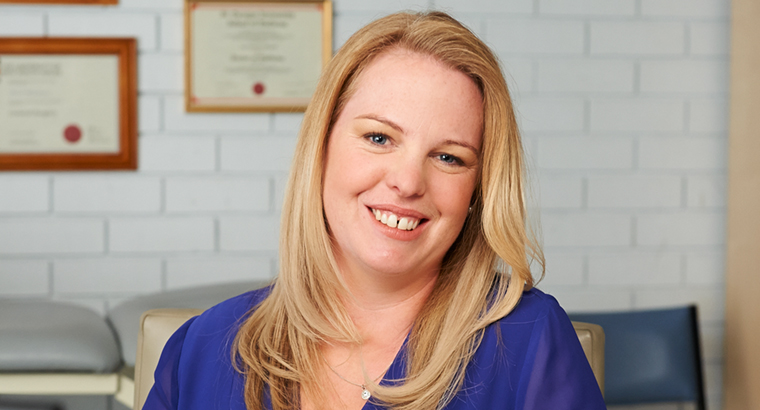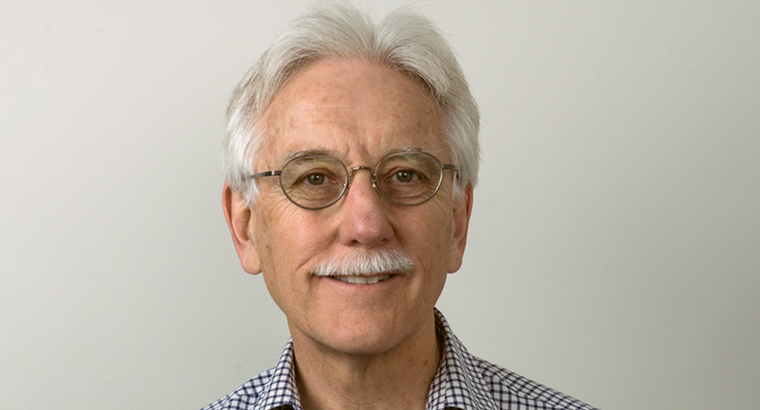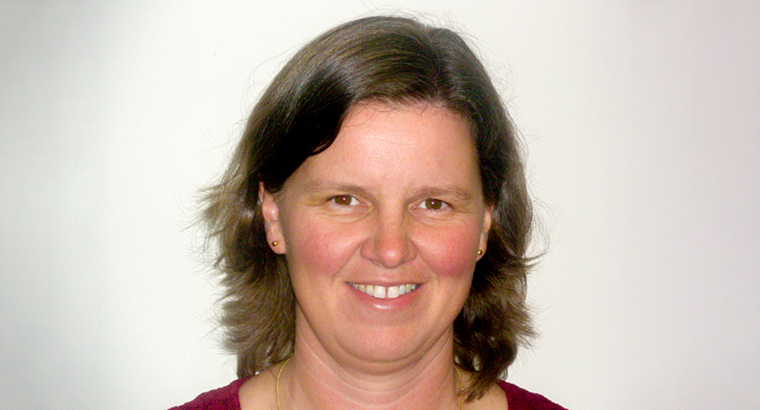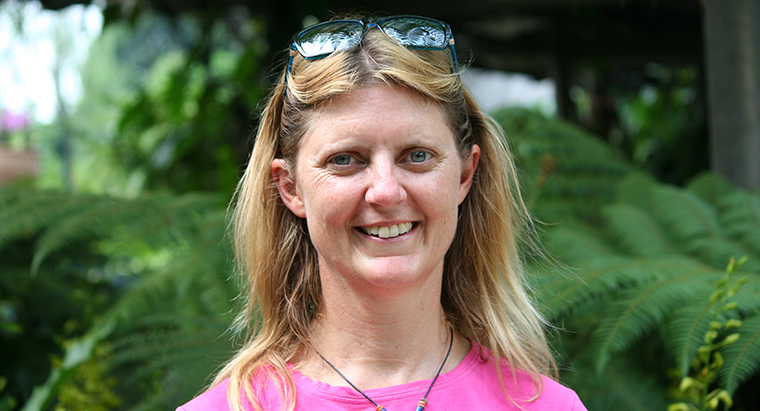Interview
RACGP’s top GPs announced
The finalists in the 2018 RACGP General Practice of the Year Award, representing the best GPs from across Australia, have been named.
 The RACGP GP of the Year awards recognise excellence in general practice and general practice training.
The RACGP GP of the Year awards recognise excellence in general practice and general practice training.
The annual award recognises GPs who have demonstrated exceptional commitment to improving the health and wellbeing of their community.
RACGP President Dr Bastian Seidel said each of the 2018 state finalists were tremendous role models for the general practice profession.
‘Each of our finalists is an inspirational GP and a central member of their community,’ he told newsGP. ‘They go above and beyond to ensure their patients are at ease and have devoted their careers to enhancing the lives of their patients.
‘They are also committed to educating and training the next generation of GPs and send a strong message to young medical students and GP registrars that they can be whatever they want to be in general practice.’
The national winners of the RACGP awards will be announced at GP18 – the RACGP’s annual conference for general practice – running from 11–13 October 2018.
newsGP spoke with each of the finalists to find out what they enjoy about general practice and how it feels to be a state award winner.
Tasmanian GP of the Year, Dr Columbine Mullins

Why did you choose to specialise in general practice?
It took me some time to decide to specialise in general practice as there are so many exciting and different areas of medicine. But eventually I selected general practice as I really appreciate the opportunity to develop a clinical relationship with patients and the community I work in. I appreciate that general practice is diverse, flexible and is so practical. I also enjoy the opportunity to develop a niche area of interest but to stay a generalist.
What do you enjoy about being a GP?
I enjoy my day-to-day interactions with my patients and colleagues. It is such a privilege to care for a patient and their family. I enjoy witnessing the wins that patients experience – quitting smoking, confirming a long-awaited pregnancy or confirming the successful treatment of hepatitis C.
It’s great to work with like-minded people and to teach medical students and registrars. Also, there is so much diversity in general practice, I'm never bored. I get to do clinical work, teach, run a business, run a mobile street health clinic and I have been able to work overseas with general practice.
What’s the most valuable piece of advice you have received in your career?
I remember when as a medical student doing a ward round, a physician said we can always learn something from our patients, we just need to be interested. Since that time I have made a point to be interested and it has made my work so much more enjoyable and rewarding. I really value the opportunity to hear people's stories – it is a privilege and honour.
What do you look forward to in the future?
I look forward to continuing to work with our great team. I hope we can continue to provide quality healthcare through our mobile clinic to disadvantaged and vulnerable Tasmanians. I would like to see our team grow in size so we can increase the number of people we can support. I would also like to learn more about how we can improve equitable access to health care in Australia as I am concerned that the gap is widening between who can access timely and quality health care and those who can't.
What does it mean to you to receive the Tasmanian GP of the Year award?
It is a lovely surprise and honour. I still don't know who nominated me but it has been very encouraging. I have been very lucky to have met some wonderful inspiring GPs during my training – many of these would be more deserving of this award I'm sure. GPs do a wonderful service to patients and their community in frequently challenging conditions.
Western Australia GP of the Year, Dr William Sands

Why did you choose to specialise in general practice?
I think from the beginning of my undergraduate training I always had a leaning towards it. My choice was confirmed in my second postgraduate year when I worked in general practice and found the doctors I worked with inspiring and greatly enjoyed the clinical autonomy.
What do you enjoy about being a GP?
It is the relationship over the years with the individual patient that, in the end, has sustained my enthusiasm for and commitment to general practice. The patient’s changing medical needs over time provide new clinical challenges as we strive to provide the best care we can.
What is the most valuable piece of advice you have received in your career?
Probably the question answers itself in that one of the most useful things you can do is get advice. You cannot as an individual always meet all of the patient’s needs, so team work is essential.
What do you look forward to in the future?
Hopefully General Practice will continue to thrive and prosper. Certainly I think the quality of GPs is now as good as it has ever been. For myself, I will continue to work, but plan to spend more time with my family and grandchildren.
What does it mean to you to receive the Western Australia GP of the Year award?
There are many very deserving GPs so I am very grateful to my colleagues who put my name forward, and honoured and humbled that the RACGP should have chosen to award it to me. Thank you to everyone involved.
New South Wales GP of the Year, Associate Professor Katrina Anderson

Why did you choose to specialise in general practice?
As a student and junior doctor I loved every term I did, and so early on I realised I didn’t want to be limited to just one area of medicine, but wanted to be able to do whole-person care. I wanted the long-term relationship with patients across generations as the family GP who helped people through the good, the bad and the ugly.
I like the way a consultation can go on for years and years – it is a journey, full of surprises both good and bad. It is like being a side character making a small difference to the story in hundreds of novels of
people’s lives.
What do you enjoy about being a GP?
I love being a GP – people’s lives, stories and problems are so interesting. Over the years the medicine becomes routine but the way in which patients as individuals cope and grow and manage their medical issues never gets boring. It is a creative job in which you attempt to help someone solve an issue in a way that might work for them.
In my current work, I look after refugees and asylum seekers and every time I go to work it is like traveling overseas, learning so much about people and their culture. My patients teach me so much about what it is to be human, to suffer and be resilient in the face of tragedy and I am reminded again and again of how much I have to be grateful for and how much I have to learn about healing and the human spirit.
As a GP academic I hope to teach and model patient-centred practice and so I am constantly learning from my students and registrars about the complex art of communication both as a teacher and a doctor.
What’s the most valuable piece of advice you have received in your career?
Early on I was told by a colleague that a consultation will be more efficient if you shut up and listen as it will allow you to get to the heart of the matter. The same applies when giving advice – let the patient do most of the talking. Having sat in as a GP educator on hundreds of registrar consultations where registrars do most of the talking because they think that is what a doctor should do, I now know how fortunate I was to learn this wisdom early on in my career.
What do you look forward to in the future?
I feel very fortunate I have a profession that is so flexible, adaptable and can be so creative. There are so many things I want to do in the future such as work overseas in refugee camps, in remote aboriginal communities, rurally in small communities and gain extra skills in areas such as psychological medicine, sports medicine, palliative care – the list is endless. How great is a profession where you can’t manage to cover all the interesting parts of it in a life-time?
I also know we are training wonderful young doctors for the future who care about whole-person, patient centred care – these young doctors see general practice as a vocation, one in which we give service, compassion and expertise for individuals whom we care about deeply.
What does it mean to you to receive the GP of the Year award?
This award ultimately honours my patients who have been the main teachers in my journey as a GP. I also must acknowledge the wonderful GP colleagues who I have learnt, and continue to learn, so much from. I am not sure if we recognise how collegiate we really are and how much we do support each other, but without my GP colleagues I couldn’t do the work I do.
South Australian and Northern Territory GP of the Year, Dr Karen Fuller

Why did you choose to specialise in general practice?
I chose general practice for the variety and scope of practice – you never know what will walk through the door. I enjoy the fact you are constantly leaning and it keeps you on your toes. No two days are ever the same.
What do you enjoy about being a GP?
The reason I chose general practice is to have the chance to get to know your patients, sometimes through generations. You get to build relationships. The trust people give you and the involvement in their lives, especially through the difficult times. I am often in admiration at people’s strength and resilience.
What is the most valuable piece of advice you have received in your career?
I think the phrase of a general practice supervisor of ‘common things occur commonly’ was a good one – although in remote Indigenous practice that is not always the case.
The other valuable piece of advice was to always listen to the mother. If she is worried about her child, then you should be too.
What do you look forward to in the future?
I look forward to gaining further understanding and knowledge about Aboriginal and Torres Strait Islander culture. I am hopeful that with time and trust there can be some genuine improvement in the lives of Indigenous Australians. I’m also looking forward to finishing my Masters of Public Health and would like to do some volunteer work abroad in the future.
What does it mean to you to receive the GP of the Year award?
I am actually a bit shocked about winning the award and am not sure it has really sunk in. I am very flattered that a colleague chose to nominate me and it is nice to get some recognition for times of working hard.
However, I work with such amazing strong, dedicated and highly skilled doctors, nurses and especially the Aboriginal health practitioners who I feel deserve the same recognition. I could not do my job without their skills and their support. Working for an Aboriginal Community Controlled Health Service is a privilege and I feel very blessed to work within this team.
GP18 RACGP awards RACGP GP of the Year
newsGP weekly poll
Would it affect your prescribing if proven obesity management medications were added to the PBS?